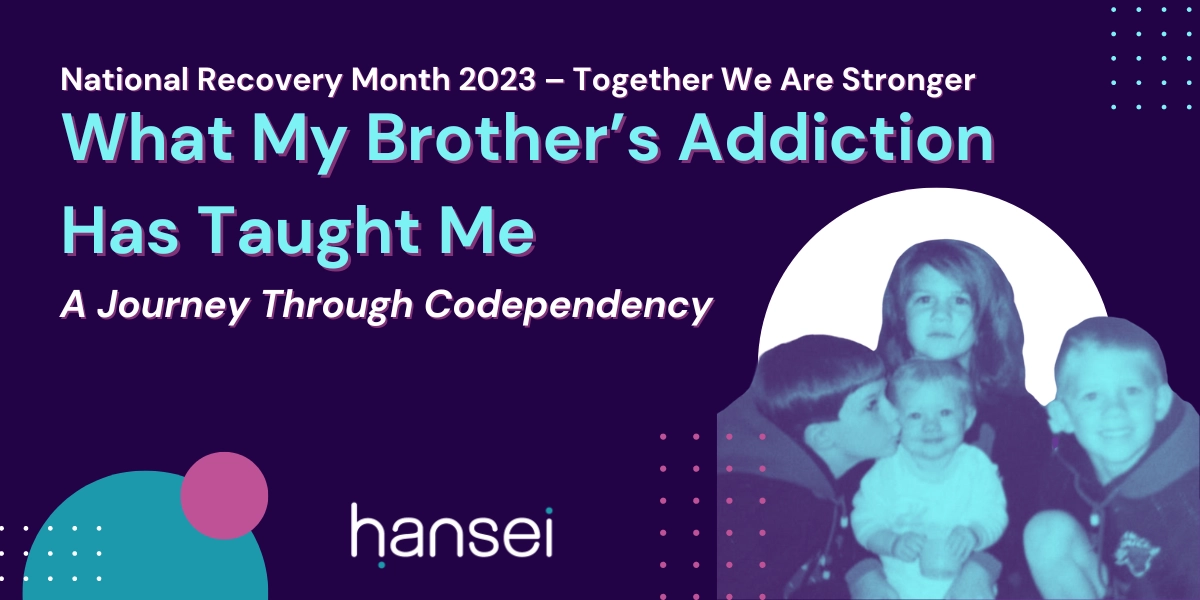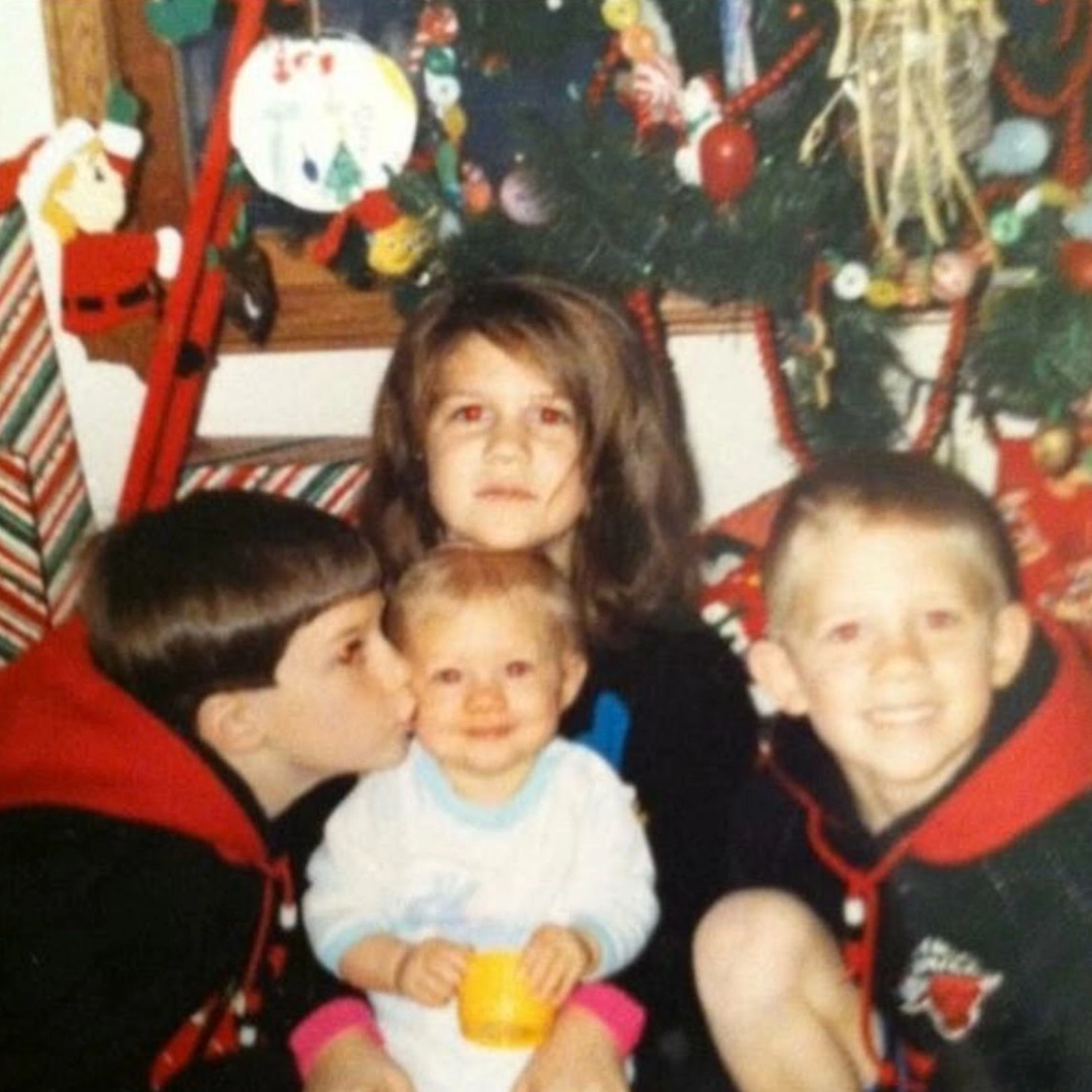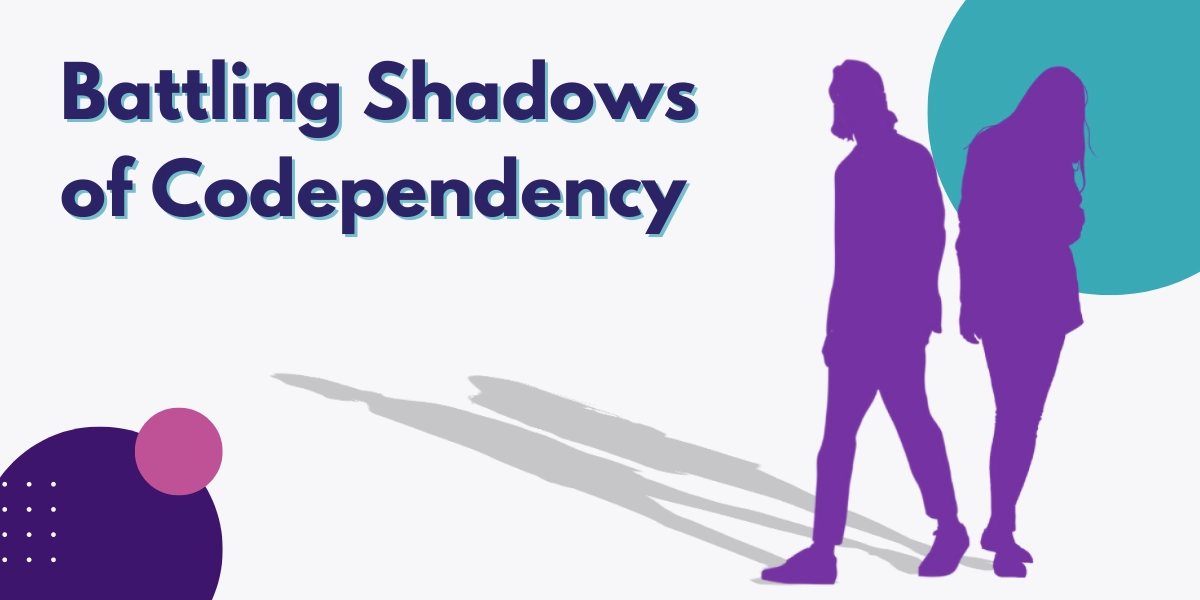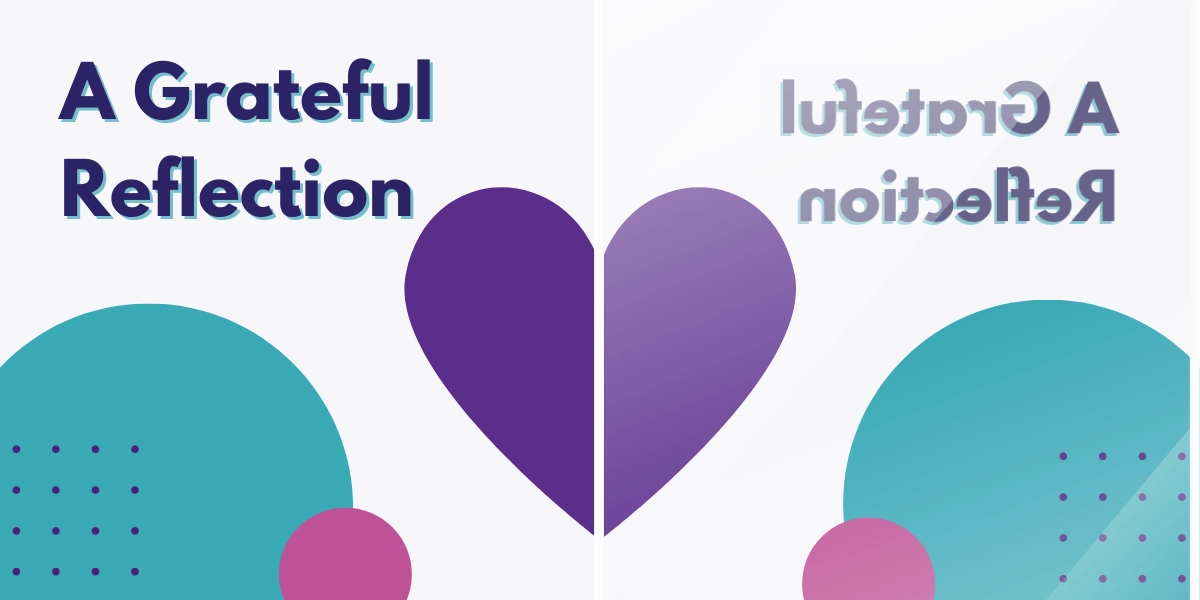Blog
National Recovery Month – Together We Are Stronger
What My Brother’s Addiction Has Taught Me
A Journey Through Codependency
Blog
National Recovery Month – Together We Are Stronger
A Journey Through Codependency

Table of Contents
Carli Stump
Director of Brand Strategy
I was in seventh grade the first time I visited my brother in treatment and it wasn’t until then that I considered how his addiction impacted me, or perhaps even acknowledged it was real, despite the trajectory of signs. By the time I was in fifth grade, his once inviting personality started shifting into something colder, while his physical body appeared to be slowly deteriorating. I convinced myself he was just sick when the needles fell out of his bag in the NYC airport, even though my dad’s reaction told me it was much, much more.
Coming from a large Irish-Catholic family meant drinking was an essential part of holidays and gatherings, so it’s not a stretch to assume the stigma I’d associated with ‘addicts’ may have been attributed to the healthy relationship my family seemed to have with alcohol. At twelve-years-old, I was seeing the darker-side as I sat amongst a wide circle of strangers visiting their loved ones. I was intimidated but took it in stride, observing the face to face conversations in the center of the room until my name was called. I felt my stomach flip as our knees touched and allowed my eyes to lock with my brother’s before he asked, “Carli, how has my addiction affected you?”
Until that moment, I hadn’t really thought about it; I was just a kid, trying to keep the peace while unconsciously suppressing these growing feelings of instability. My people-pleasing tendencies must’ve kicked in because I didn’t accuse him of anything outside of ‘you picked on me a lot;’ a response you might expect from a sibling eight years younger. As I reflect now, I can see how out-of-body that whole experience was, from pulling up to the treatment center, to being inside, seeing people’s faces and mannerisms up close. Though much of that time feels fragmented, I remember nothing there were more family members there to support my brother than any other person in treatment that day.

Growing up, my parents were the steadfast figures I looked to for love and encouragement. The routine of squabbling while maintaining a fierce loyalty to them and my three siblings was one I came to understand well. My dad worked long hours to provide for our family and still managed to cheer us on from the bleachers. While my mom, anchored in physical, mental, and spiritual well-being, resembled a pillar of strength for me. Her commitment extended beyond the household, coaching many of our sports teams, which I loved.
Beneath this façade of normalcy, however, there was a rising current of tension, pushing our family into ‘fight or flight’ mode until it became the norm. It wasn’t something we openly discussed; I would categorize it more as a silent understanding that slowly pervaded our lives. The instinct was to conceal and safeguard everyone from the reality of addiction’s burden, though I can’t help but wonder what might have transpired had we dared to shift our perspective earlier. Though I haven’t experienced drug addiction personally, the circumstances have affected my life in more ways than I can count. As a natural overthinker, my mind wove intricate narratives, often spiraling into negativity. I didn’t just overthink, I mentally prepared myself for the inevitable – that gut-wrenching call delivering the news of an irreversible loss. Each time the phone rang and my mother answered, fear gripped me as I anticipated news from the other end. Why was my brother an addict? Why would he do this? There wasn’t a big destructive event or a broken family dynamic… I was confused and hurt, becoming increasingly anxious as my thoughts ran rampant.

Into adulthood, this pattern persisted; my mind would catalog potential fates for someone caged by addiction, imagining life without my brother. I believed this mental rehearsal could soften the blow of reality, not realizing I was struggling with control and codependency. Even with an abundance of support, I felt bound by intense feelings of isolation, holding onto the belief that nobody could fathom the intricacies of what my family and I were going through. I was unknowingly driving barriers between myself and anyone who would dare to try and get it. Watching my friends’ lives harmonize while mine felt more and more broken was peculiar; I wove intricate tales to explain my brother’s absence, depriving myself of the empathy and normalcy I so longed for. Long grappling with the reality of my limited sway over his addiction, I began to confront the truth that I couldn’t force him into treatment or ensure his sobriety. His healing required more than what anyone could offer – a divine intervention – a miracle altering his trajectory.
Over time, and through prayer, therapy, friendship, and communal support, it got more manageable; whenever I found myself in that heightened state of panic and fear, I would contemplate the question, ‘what can I control right now?’ Ironically, around the time I felt I had a handle on the whole codependency thing, I received an email from my church titled, ‘How Addiction Affects the Family,’ and thought, ‘been there, done that – not interested.’
And with that, I was humbled.
That was the week my brother relapsed, ending years of sobriety; the moment became etched into my memory with indescribable weight, shattering not only our family’s foundation but my understanding of recovery. His years of sobriety, once a testament to his strength, now seemed vulnerable. The illusion that he was “cured” was over, replaced by the disconcerting truth that recovery is a lifelong endeavor. The years of tragedy preceding his relapse left our family weathering (non-addiction related) storms which made his faltering almost feel selfish. Amid empathy, a touch of judgment emerged, which is a reaction I still struggle to admit. Though I felt betrayed, I wanted my brother to find his way back. Remembering that email from church pushed me to sign up; it was time for me to advocate for myself. One thing led to another, and I soon found myself in a familiar community group circle… hello, seventh grade.
The discussion topic: ‘Love is a Choice – A Reflection on Co-Dependency.’
This room, as well as the people in it, became a sanctuary of camaraderie and shared understanding, where people expressed their vulnerabilities, finding solace in the knowing glances and empathetic nods from those who walked parallel paths.
Now at 30 years old, in recognizing my co-dependency, I also came face to face with my attachment to external validation. My inherent desire to please others and preserve harmony had intertwined themselves into my identity. It was a realization that spoke to the part of me that was deeply affected by my brother’s struggles.
Being part of this group showed me the universal threads that can manifest in various ways, whether tied to substance-related issues or not. It’s a journey I’m still navigating, one that’s teaching me to embrace the beauty in vulnerability, to accept that control is an illusion, and that the uncharted path holds its own kind of strength.
Stitched By Struggle
My brother is unapologetically himself. He is a fighter, a go-getter, and he loves in all ways possible—tough love as needed, tender love when necessary, and, most importantly, fun love at all times in between. Ultimately, he is the reason why hundreds of other men and women are alive and healing today.
We can’t control what happens to us, but we can control how we respond, and I believe that when we are blessed, we are called to be a blessing to others.
In the words of William White, “The contagion of recovery is spread quite differently—not through infection, but affection. Those who spread such affection are recovery carriers.”
With that, and through consistent self-reflection, I’ve come to terms with the fact that relapse can be part of the recovery process. I’ve also realized that we’re all recovering from something.

As I journey through the complexities of loving an addict and treading gently on my own path of healing, a surprising blessing has unfolded – the opportunity to work in the realm of addiction treatment.
This experience has gifted me with a profound empathy for individuals and families grappling with various forms of addiction and mental health issues. It has provided me with a deeper understanding of my brother’s struggles, a perspective I might never have reached otherwise. Moreover, it has allowed me to contribute to a community that once offered my family and I comfort and support.
Leaning on the unwavering presence of the Hansei family has helped me navigate the intricacies addiction has had on my adult life. Their unconditional support led to a profound shift in how I perceive my brother’s story and my role within it. The understanding that his narrative is distinct from my own has been transformative, as I often connected my identity to his struggles.
In this moment, I embrace gratitude for the present.
I cherish my brother’s sobriety today, recognizing that tomorrow’s certainty is not guaranteed, but also having faith in him in the here and now. Within this awareness, I am thankful for the opportunity to share a fragment of my story with you.
In closing, and to my brother –
It’s safe to say your addiction hurt me, but it’s also healed me as I now understand myself in ways I could have never imagined. I’ve learned to set boundaries to be okay, and I know that I’ll always love you, no matter what.
Finally, a resounding shout-out to the 23 million (and counting) individuals in recovery, each of whom is actively shaping the world around them every day. Indeed, together, we are undeniably stronger, tied by threads of resilience, shared stories, and the determination for a brighter future.
Tools for the Journey
In experiencing the effects of addiction, I discovered essential tools for recovery:

Ready to focus on providing healthcare? Let us lighten your load.
We’re here to address your pain points and create growth opportunities for your organization. We’re passionate about what we do, and it shows in every interaction. Learn what makes us tick and schedule a demo today.